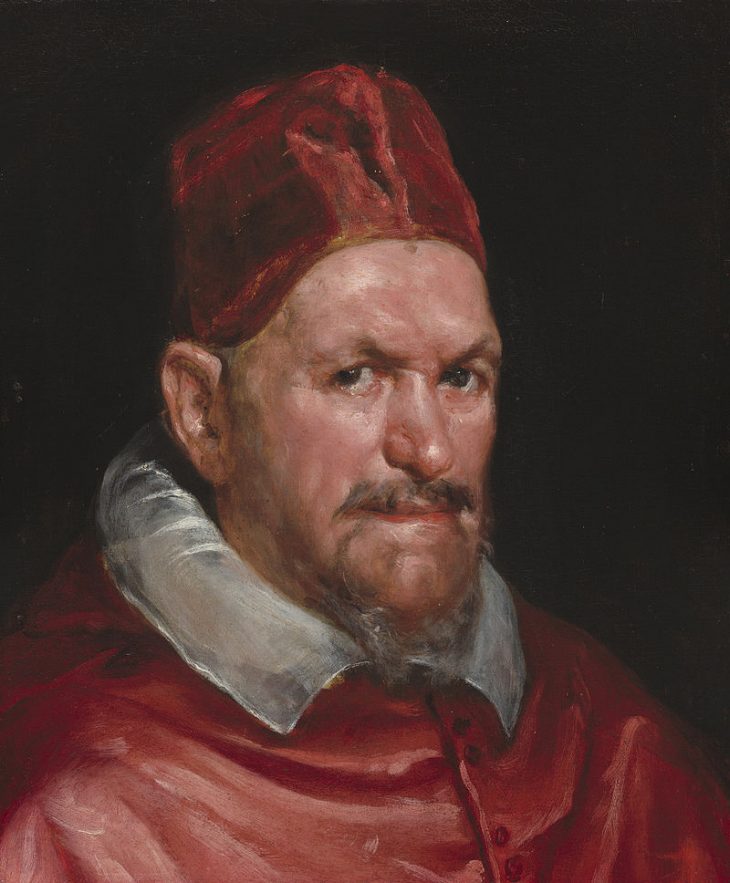
Word of the Day: Renege
The New York Times Word of the Day for today is renege, which means “to fail to fulfill a promise or obligation,” or, according to www.dictionary.com, “to go back on one’s word.” According to www.etymonline.com, it entered the language in the “1540s, ‘deny, renounce, abandon,’ from Medieval Latin renegare, from Latin re-, here probably an intensive prefix, + negare ‘refuse,’ from PIE root *ne- ‘not.’ Meaning ‘change one’s mind’ is from 1784.” It also has a meaning in the game of bridge, both as a verb and as a noun, but nobody plays bridge anymore.
On this date in 1648, according to the OnThisday website, Pope Innocent X condemned the Peace of Westphalia. The what? The Peace of Westphalia! Why would a Pope condemn a peace treaty, you might ask. Well, first some background.
There used to be this thing in Europe called “The Holy Roman Empire.” It got its beginning around 800 when Pope Leo III crowned Charlemagne (Charles the Great) “King of the Romans.” Eventually, the Empire consisted of territories throughout Western and Central Europe, and even Italy. It existed, more or less, in one form or another, until 1806. But despite the efforts of numerous emperors over the years, it never really became a unified empire, consisting instead of numerous smaller kingdoms where were loosely aligned.
For instance, in 836, Otto I was crowned King of Aachen, a city in Germany. Otto gradually expanded his power, unifying many parts of Germany under his rule. He defeated the Magyars in 955, gaining a reputation as a savior of Christendom. Partly through his marriage to Adelaide, Queen of Italy, and partly through conquest, he became the King of Italy in 961. Then, in 862, Otto was crowned Holy Roman Emperor by Pope John XII in Rome. Otto died in 973, and while his son, Otto II, succeeded him as Holy Roman Emperor, he couldn’t keep control over the many kingdoms and regions under his rule. Soon, the power became decentralized.
For most of its existence, the Holy Roman Empire was dominated by the Roman Catholic religion, and to some extent by the Pope, though at various times along the way the Emperor lorded it over the Pope. Then, in the early 16th century, Protestant groups started to emerge out of the corruption of the Roman Catholic Church. Most notably, Martin Luther and his followers, who attempted to reform the Church, were excommunicated. This Reformation led to conflict throughout Europe between the various expressions of Christianity.
In 1555, the Treaty of Augsburg was signed between Charles V, Holy Roman Emperor, and the Schmalkaldic League, a group of German princes who were supporters of the Lutheran Church. If made official the division of the Empire into Roman Catholic and Lutheran kingdoms, allowing the prince of each kingdom the power to determine which faith expression his kingdom would adhere to. This peace lasted until 1618, when the newly elected Ferdinand II, Holy Roman Emperor, decided to impose religious uniformity, i.e. Roman Catholicism, on the entire empire, reneging on the promise made in the Peace of Augsburg.
Ferdinand’s reneging on the promise of the Peace of Augsburg led to the 30 Years’ War, which started out as a religious war but turned into a kind of proxy war between France and the Hapsburgs for political domination of Europe. This war led to the untimely loss of about 8 million people, most of them in what today is Germany. While many of the dead fell in battles, as both the French and the Austrians employed largely mercenary armies, many others were civilians who died from starvation or illness or the violence of the soldiers.
The Peace of Westphalia, which took years to cobble together, and which was the result of negotiations by hundreds of diplomats from around the Holy Roman Empire and beyond, ended that war, as well as a couple of other conflicts that were taking place around Europe. Had the war continued, millions more likely would have died. According to the wiki, “The Peace of Westphalia established the precedent of peace established by diplomatic congress. A new system of political order arose in central Europe, based upon peaceful coexistence among sovereign states. Inter-state aggression was to be held in check by a balance of power, and a norm was established against interference in another state’s domestic affairs. As European influence spread across the globe, these Westphalian principles, especially the concept of sovereign states, became central to international law and to the prevailing world order.”
And Pope Innocent X condemned it. Why? Because of narrow religious partisanship and the desire for power. Just as Ferdinand reneged on the promise of the Peace of Augsburg, the ironically named Innocent X reneged on his promise to put Christ’s church ahead of his own political ambitions.
Far too often leaders are corrupted by the power that they have, and this corruption may result in reneging on promises, trying to destroy lives, or just failing to abide by the teachings of Christ. And the amount of power such people have does not seem to matter. They might be popes, emperors, or just college administrators. And reneging on promises is never a good thing.
The image is a fragment of the Portrait of Innocent X, by Diego Velázquez.